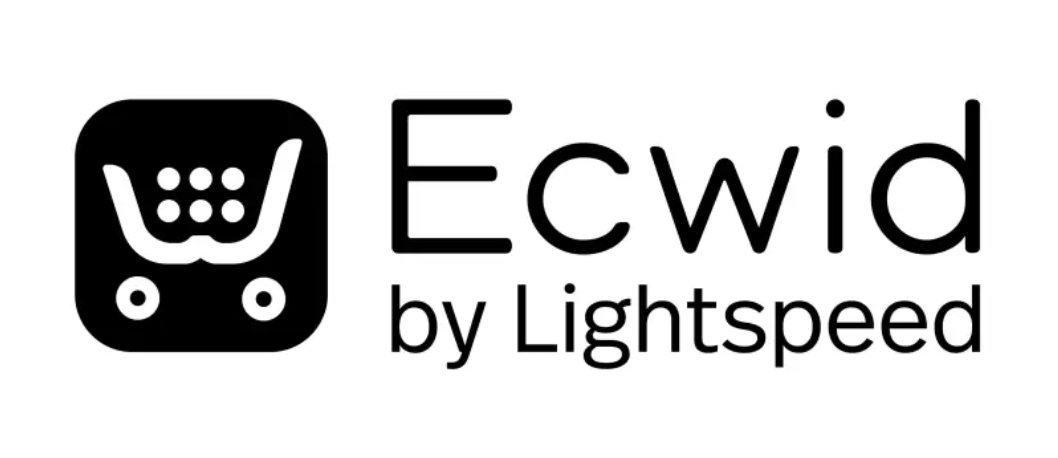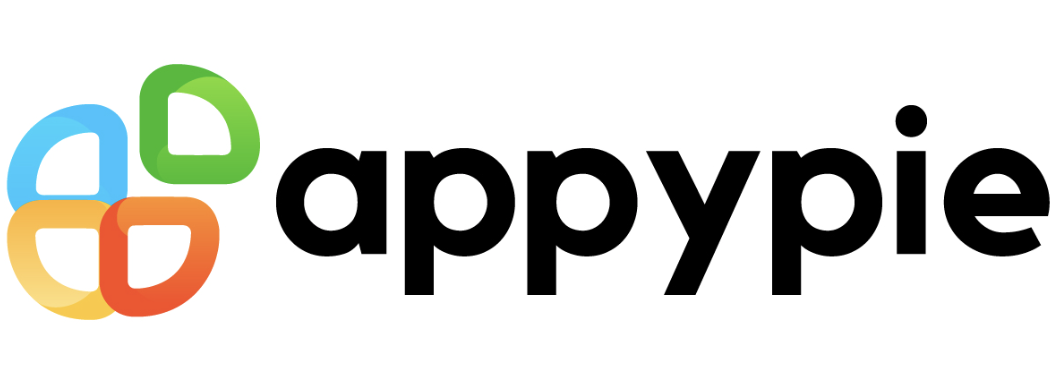
Back to hub
Blog
Marketing
The Best e-Commerce Website Builders for Online Stores in 2025
Published on May 25, 2025Updated on Aug 3, 2025
Building an online store has never been more crucial – or more achievable. With global eCommerce sales projected to reach unprecedented heights, choosing the right platform for your digital storefront could be the difference between a thriving business and a missed opportunity. But here's the thing: picking an eCommerce platform isn't like choosing what to binge-watch on Netflix (though it can feel just as overwhelming with all the options out there!).
Whether you're a solopreneur launching your first product or an established business ready to scale internationally, this comprehensive guide will walk you through the best eCommerce website building platforms available in 2025. We'll cut through the marketing fluff and give you the real scoop on what works, what doesn't, and which platform will actually help you make money.
What Makes an eCommerce Platform Great in 2025?
Before we dive into our top picks, let's establish what separates the wheat from the chaff in today's competitive landscape. The best eCommerce platforms share several key characteristics:
AI-Powered Intelligence
92% of businesses are already using generative AI to enhance the ecommerce experience for more powerful personalization. As AI moves from tech trend to mainstream, it'll be a cornerstone of successful digital storefront strategies in 2025.
The platforms that thrive are those integrating smart features like automated product descriptions, personalized recommendations, and AI-driven customer support.
Seamless User Experience
Studies have shown that it takes 50 milliseconds for visitors to decide if they'll stay on an ecommerce site or not.
Your platform needs to deliver lightning-fast loading times, intuitive navigation, and a checkout process smoother than a jazz saxophone solo.
Scalability Without the Headaches
Think of your platform as the foundation of your house – you don't want to rebuild every time you add a new room. The best platforms grow with your business, handling everything from 10 orders to 10,000 without breaking a sweat.
Mobile-First Design
With mobile commerce accounting for an increasingly large share of online sales, your platform must deliver a stellar mobile experience. No compromises, no "it works okay on mobile" – it needs to be phenomenal.
The Top 11 Best eCommerce Website Building Platforms for 2025
1. Shopify - The Heavyweight Champion

Let's start with the elephant in the room – or should we say, the 800-pound gorilla of eCommerce platforms. Shopify powers over 8.2 million websites worldwide, making it one of the market's most widely adopted ecommerce platforms
Why Shopify Dominates:
Each Shopify store comes with everything you need to get up and running: SSL certificates, domain hosting, more than 200 professionally designed themes, plus essential ecommerce features like the world's best-converting checkout, simple order management, and abandoned cart recovery emails
Shopify has over 6,000 apps available in the Shopify App Store
– that's like having a Swiss Army knife with 6,000 tools
AI Integration: Use Shopify's AI tools to streamline your store design process, create landing pages and product listings, and receive guidance on everything from shipping to analytics
Perfect For:
Businesses planning to scale significantly
Companies needing robust inventory management
Entrepreneurs who want everything handled for them
Pricing: Starting at $29/month (billed annually)
The Reality Check: While Shopify is phenomenal, it comes with transaction fees if you don't use Shopify Payments, and customization can get expensive with premium themes and apps.
2. WooCommerce - The Customization King

WooCommerce is the most popular eCommerce platform (yes, even more popular than Shopify), with 6.6 million users If Shopify is the luxury car, WooCommerce is the hot rod you build yourself.
WooCommerce's Superpowers:
Complete Control: WooCommerce provides unlimited customization and control for technically savvy users who manage their hosting and maintenance
Cost-Effective: WooCommerce is a completely free plan to use and set up
WordPress Integration: WooCommerce offers more flexibility due to its larger extensions library. It runs on top of WordPress, so it can be used for blogging and a business website at the same time
Perfect For:
Businesses with technical expertise
Companies wanting complete design freedom
Budget-conscious entrepreneurs
Pricing: Free (plus hosting costs starting around $6.45/month)
The Catch: You're essentially becoming your own IT department. Updates, security, backups – it's all on you.
3. BigCommerce - The Feature-Rich Powerhouse

BigCommerce caters to large-scale businesses with its robust ecommerce tools and customizable platform, offering web hosting and extensive site customization
Think of it as the platform for serious business owners who want enterprise features without enterprise complexity.
BigCommerce Advantages:
No Transaction Fees: BigCommerce doesn't charge any additional transaction fees, which can result in significant savings, especially for high-volume sellers who process many transactions
Built-in Features: BigCommerce offers the most features upfront
International Ready: BigCommerce is equipped for international sales, SEO optimization, and multichannel selling across social platforms and online marketplaces
Perfect For:
Growing businesses ready to scale
Companies selling internationally
Businesses processing high transaction volumes
Pricing: Starting at $29/month (billed annually)
4. Wix eCommerce - The User-Friendly Maverick

Wix tries to please everybody. And somehow, it's doing a great job at that. It's an effortless website builder, letting you cook up a simple online shop in just a couple of minutes and no work at all
Wix's Winning Features:
AI Website Builder: Wix's AI web builder creates a customized website based on your answers to a brief questionnaire and offers a simple drag-and-drop editor for easy customization. It includes all the tools for SEO optimization, ecommerce functionalities, and built-in marketing apps
Beginner-Friendly: This is gold if you're a beginner, as no technical skills are required
All-in-One Solution: Wix is one of the best best all-in-one ecommerce platforms on the marker that'll equip you with everything you'll ever need to build a beautiful online store. It comes in the package with a web hosting service and a domain name, free or paid
Perfect For:
Small businesses and startups
Creative entrepreneurs
Anyone wanting a beautiful store without technical hassles
Pricing: Starting at $29/month for eCommerce features
Limitation: No matter how much you pay for Wix, you'll be limited to only 50,000 products, whereas Shopify and Squarespace offer unlimited products
5. Squarespace Commerce - The Design Perfectionist

Squarespace's best-known advantage is that it has some of the most beautiful website builder templates on the market. Squarespace's templates are all designed in-house and are completely optimized for cell phones, tablets, laptops, and PCs
Squarespace Strengths:
Stunning Templates: Professional designs that make your products look like they belong in a magazine
Ease of Use: Squarespace is the best website builder for beginners, due to its notable ease of use
Integrated Features: The platform offers built-in search engine optimization (SEO) features, helping improve your store's web ranking; social media integrations, so that you can drive more traffic to your page; and a free integration with Mailchimp, a leading email marketing tool
Perfect For:
Design-conscious businesses
Creative professionals
Companies prioritizing visual appeal
Pricing: Starting at $27/month for Commerce Basic
6. Square Online - The Brick-and-Mortar Bridge

Square Online is an adaptive ecommerce platform that has been especially designed with brick-and-mortar store businesses in mind. It particularly shines at making it simple to integrate online and offline business operations, which automatically sync up inventory, sales, and customer data across channels
Square Online Benefits:
Free Plan Available: Get started without upfront costs
POS Integration: Seamless connection between online and in-person sales
Simple Setup: The platform provides all that is needed to create a professional webstore, from product management to inventory tracking to straight-through payment processing
Perfect For:
Physical retail stores going online
Service-based businesses
Small businesses with basic needs
7. Shift4Shop - The Enterprise Alternative

Shift4Shop focuses on providing essential ecommerce features with limited customization options. This makes it straightforward for those who prefer a structured approach to setting up their online store
Key Features:
Free Plan: $0/month when processing minimum $1,000/month
Built-in Tools: Comprehensive feature set without additional apps
SEO Optimized: Strong search engine optimization capabilities
Perfect For:
Established businesses with consistent revenue
Companies wanting enterprise features at lower costs
8. Hostinger Website Builder - The Budget Champion

Hostinger Website Builder caters to business owners who wish to build an eCommerce website quickly and easily. It offers an intuitive drag-and-drop builder and a vast selection of site elements, making it one of the best eCommerce website builders for beginners
Hostinger Highlights:
Affordable Pricing: Some of the most competitive rates in the market
AI-Powered Tools: Hostinger Website Builder packs a Google Ads integration out of the box, with the ability to create Performance Max campaigns from the single dashboard. Performance-wise, the eCommerce platform's built-in speed optimization techniques effectively ensure fast load times
Fast Performance: The three websites we tested averaged an LCP of 1.8 seconds and a full load time of 2.5 seconds. All of them scored B in GTmetrix
Perfect For:
Budget-conscious entrepreneurs
Small businesses starting online
Anyone wanting good performance at low cost
9. Ecwid - The Existing Website Enhancer

Ecwid makes adding eCommerce functionality to existing websites and social media accounts hassle-free and inexpensive. Its limited customization options make it one of the best online store platforms for beginners and people who want to avoid overburdening themselves with too many choices
Ecwid Advantages:
Easy Integration: Add to existing websites without rebuilding
Social Commerce: Sell directly on social media platforms
Multichannel Sales: Manage everything from one dashboard
Perfect For:
Businesses with existing websites
Social media-focused sellers
Companies wanting simple eCommerce addition
10. 10Web AI Ecommerce Builder - The AI Revolution

10Web Ecommerce AI Builder is a cutting-edge tool that uses artificial intelligence to help you build, optimize, and manage your online store. It simplifies the process by allowing you to describe your business and products, which then creates a fully editable and functional ecommerce website with advanced features and automation capabilities
AI-Powered Features:
One-Prompt Setup: The AI builder does everything for you. All you have to do is prompt
WordPress Integration: It also optimizes for SEO and has easy to use WordPress plugins
Affordable Pricing: The best part is the price - which for most is really affordable
Perfect For:
Tech-savvy entrepreneurs
Businesses wanting cutting-edge AI features
WordPress users
11. Appy Pie - The App-Enabled Pioneer

Appy Pie is a unique AI website builder for ecommerce businesses because it not only creates an online store for you but also creates an app that your customers can use to order anytime and from anywhere. To build an ecommerce website with this Appy Pie, you need to add 1-2 sentences on the type of store you need, and this AI builder automatically creates a store for you
Unique Selling Points:
Mobile App Creation: Automatic app generation alongside website
AI-Driven: Simple prompt-based store creation
No-Code Solution: Perfect for non-technical users
Perfect For:
Mobile-first businesses
Companies wanting both web and app presence
Entrepreneurs with limited technical skills
2025 eCommerce Trends Shaping Platform Choice
AI Integration is Non-Negotiable
The top e-commerce trends for 2025 include AI-driven personalization, social shopping, sustainability, and voice commerce
Platforms that don't embrace AI will be like trying to compete in Formula 1 with a horse and buggy.
Composable Commerce Rising
Composable commerce will continue to reshape the e-commerce landscape in 2025 by offering businesses even more flexibility in how they deliver their digital storefronts. Unlike traditional monolithic commerce platforms, composable commerce setups are modular, allowing brands to create and then adapt their e-commerce infrastructure using various components or microservices
Social Commerce Explosion
When it comes to finding new products, interacting with brands, and authentic product recommendations that consumers trust, social shopping will be a juggernaut for online sellers in 2025
Your platform needs seamless social media integration – not as an afterthought, but as a core feature.
B2B Buying Like B2C
Here's where things get interesting for B2B businesses. B2B buyers have shifted to digital channels and expect the same kind of buying experience they have as a consumer. For example, 33% of B2B buyers say they search for products on mobile devices and social platforms more than in the past
This is particularly relevant if you're using platforms like Emelia.io for your B2B outreach. When prospects visit your website after receiving your carefully crafted cold emails, they expect the same seamless experience they get when shopping for personal items. Your eCommerce platform needs to deliver that professional, intuitive experience that converts leads from your outreach campaigns into customers.

How to Choose the Right Platform for Your Business
Start with Your Business Model
Are you dropshipping products found through LinkedIn Sales Navigator research? Planning to scale internationally? Need complex inventory management? Your business model should drive your platform choice, not the other way around.
Consider Your Technical Comfort Level
Be honest with yourself. If the thought of managing hosting makes you break out in a cold sweat, WooCommerce might not be your friend. If you love tinkering and want complete control, Shopify's limitations might frustrate you.
Think Long-Term Growth
The cost of creating an eCommerce website can vary depending on the size of your site, the features you need and whether you hire a professional to design your site or do it yourself on an all-inclusive platform. When you take into account design costs, the costs of feature plug-ins, hosting costs and domain costs, you can pay anywhere from an estimated $1,000 to over $10,000 to build and maintain an e-Commerce website
Choose a platform that can grow with you. Migrating platforms later is like trying to move houses while you're still living in them – technically possible, but a massive headache.
Budget Beyond the Monthly Fee
Don't just look at the monthly subscription cost. Factor in:
Transaction fees
Premium themes and templates
Essential apps and plugins
Development costs
Marketing tool integrations
Integration Capabilities
If you're running sophisticated B2B outreach campaigns using tools like Emelia.io, you'll need a platform that integrates well with your existing tech stack. Can it connect to your CRM? Does it work with your email marketing tools? Can you track conversions from your outreach efforts?
The Integration Advantage: Connecting Your Store to Your Growth Strategy
One thing often overlooked in platform comparisons is how well your eCommerce site integrates with your broader business strategy. If you're running targeted B2B outreach campaigns, your website becomes the crucial conversion point where prospects decide whether to trust your business.
The best platforms make it easy to:
Track visitor behavior from email campaigns
Implement dynamic content based on traffic sources
Integrate with CRM systems for seamless lead management
Create landing pages for specific outreach campaigns
Future-Proofing Your Choice
By 2032, the ecommerce AI market is expected to reach $45.72 billion
. The platform you choose today needs to evolve with these technological advances. Look for platforms that:
Regularly update their AI capabilities
Have active developer communities
Invest in emerging technologies like AR/VR
Adapt to changing consumer behaviors
Security and Compliance Considerations
With data privacy becoming increasingly important, your platform choice impacts more than just functionality. Customers are worried about their personal data. In 2025, e-commerce brands need to implement data encryption, secure payment gateways, and responsible AI
Look for platforms offering:
Built-in SSL certificates
PCI DSS compliance
GDPR compliance tools
Regular security updates
Fraud protection
Making the Final Decision
Choosing an eCommerce platform is like choosing a business partner – you'll be working together closely for years to come. Don't just pick based on features or price; consider the entire ecosystem:
Questions to Ask Yourself:
How quickly do I need to launch?
What's my technical expertise level?
How important is design flexibility vs. ease of use?
Will I need to integrate with existing business tools?
What's my realistic budget including all extras?
How do I plan to drive traffic to my store?
The Bottom Line
The best eCommerce website building platform for your online store in 2025 isn't necessarily the most popular or feature-rich – it's the one that aligns with your business goals, technical comfort level, and growth plans.
For most businesses, Shopify remains the gold standard, offering the best balance of features, ease of use, and scalability. If you're technically inclined and want maximum control, WooCommerce gives you unlimited flexibility. For budget-conscious entrepreneurs, Wix or Hostinger provide excellent value. And if you're serious about leveraging AI, platforms like 10Web point toward the future of eCommerce.
Remember, the perfect platform is the one that gets out of your way and lets you focus on what matters most: serving your customers and growing your business. Whether those customers find you through sophisticated B2B outreach campaigns, social media, or search engines, your platform should convert their interest into sales seamlessly.
The eCommerce landscape is evolving rapidly, but with the right platform foundation, you'll be ready to adapt and thrive regardless of what changes come next.
Frequently Asked Questions

What's the difference between hosted and self-hosted eCommerce platforms?
Hosted platforms (like Shopify, BigCommerce) handle all technical aspects including hosting, security, and updates. Self-hosted platforms (like WooCommerce) give you complete control but require you to manage hosting, security, and maintenance yourself.
Can I migrate from one platform to another later?
Yes, but it's complex and can be costly. Most platforms offer migration tools, but you may lose some customizations, SEO rankings, and need to retrain your team. It's better to choose carefully from the start.
Do I need coding skills to run an eCommerce store?
Not necessarily. Platforms like Shopify, Wix, and Squarespace are designed for non-technical users. However, basic HTML/CSS knowledge can be helpful for customizations, and platforms like WooCommerce benefit from technical expertise.
How important are transaction fees?
Very important for high-volume businesses. A 1% difference in transaction fees can mean thousands of dollars annually for established stores. Factor this into your total cost of ownership calculations.
Which platform is best for international selling?
Shopify and BigCommerce excel at international commerce with built-in multi-currency support, international payment gateways, and localization features. WooCommerce can be configured for international sales but requires more setup.
Can I sell both B2B and B2C on the same platform?
Yes, most modern platforms support both models. Shopify Plus, BigCommerce Enterprise, and WooCommerce with B2B plugins can handle wholesale pricing, bulk orders, and custom payment terms alongside regular retail sales.
How do AI features actually help my business?
AI features can automate product descriptions, optimize pricing, personalize customer experiences, predict inventory needs, and improve customer service through chatbots. These lead to increased conversions, reduced workload, and better customer satisfaction.
What happens if my chosen platform goes out of business?
While unlikely with major platforms, it's a valid concern. Most platforms allow data export, and you typically own your domain and customer data. Choose established platforms with strong financial backing and active development communities.

Clear, transparent prices without hidden fees
No commitment, prices to help you increase your prospecting.
Credits(optional)
You don't need credits if you just want to send emails or do actions on LinkedIn
May use it for :
Find Emails
AI Action
Phone Finder
Verify Emails
€19per month
1,000
5,000
10,000
50,000
100,000
1,000 Emails found
1,000 AI Actions
20 Number
4,000 Verify
€19per month
Discover other articles that might interest you !
See all articlesMarketing
Published on Jun 9, 2023
Cold Emailing: The Complete Guide to getting started
 Niels Co-founder
Niels Co-founderRead more
Software
Published on Nov 7, 2025
5 Invoice Management Software Tools That'll Actually Save Your Sanity (And Your Cash Flow)
 Niels Co-founder
Niels Co-founderRead more
Blog
Published on Oct 27, 2025
5 Residential Proxy Providers That Actually Deliver
 Niels Co-founder
Niels Co-founderRead more
Blog
Published on Jun 11, 2025
The 7 Best No-Code App Builders in 2025
 Mathieu Co-founder
Mathieu Co-founderRead more
Tips and training
Published on Dec 5, 2022
Few things to avoid in your campaigns
 Niels Co-founder
Niels Co-founderRead more
Software
Published on Nov 23, 2025
5 Mobile Analytics Software Tools That'll Actually Help You Understand Your Users (2025 Guide)
 Niels Co-founder
Niels Co-founderRead more
Made with ❤ for Growth Marketers by Growth Marketers
Copyright © 2026 Emelia All Rights Reserved
